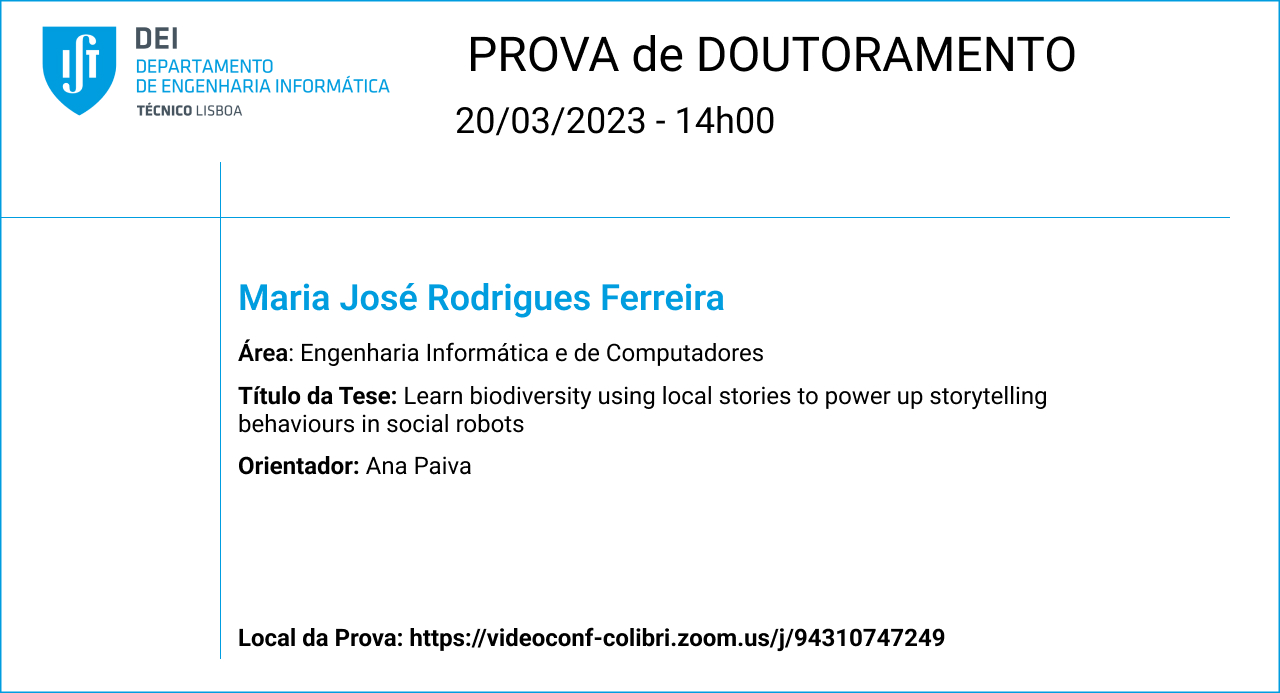Prova de Doutoramento da aluna Maria José Rodrigues Ferreira

TÍTULO DA TESE: " Learn biodiversity using local stories to power up storytelling behaviours in social robots"
LOCAL DA PROVA: https://videoconf-colibri.zoom.us/j/94310747249
DATA: 20/03/2023
HORA: 14:00 H
Thesis Abstratct:
As technology evolves, resulting in the growth of Artificial Intelligence (AI), robotics, and automated systems, so does the way we interact with it. Children are exposed to this new reality through a variety of different contexts related to learning, such as museums and classrooms. In particular, Child-Robot Interaction (CRI) and Human-Agent Interaction (HAI) have been adopted in educational scenarios with the goal of supporting children’s learning, and have the potential to become valuable tools in fomenting children’s awareness of issues such as climate change and biodiversity loss. This thesis lies at the cross-section between the areas of education, biodiversity awareness and technologies by presenting research using social agents to promote children’s engagement with the subject of biodiversity. In this context, a system with a virtual agent was developed to collect children’s knowledge about biodiversity. In several user studies, we collected data from three distinct biodiversity areas (Madeira Island, Lisbon, and Brazil), and explored the effects of (a) the mode of interaction (alone and in pairs) and (b) the children’s previous knowledge about biodiversity, in the children’s abilities to retain information while engaging in a storytelling activity. Two approaches were proposed (and subsequently validated) to estimate children’s knowledge about biodiversity by employing machine learning techniques with the data collected. Finally, an educational scenario was proposed using an interactive storytelling approach to help children comprehend their surroundings and foreign species more engagingly. The main contributions of this thesis are (1) a dataset of children’s knowledge of local and non-local biodiversity from three geographic locations, (2) several machine learning models to predict children’s level of knowledge about flora and fauna from Portugal and Brazil, and (3) an educational scenario using an interactive storytelling approach to help children learn more about biodiversity from Madeira Island, Lisbon and South Brazil, with a social robot’s aid.
